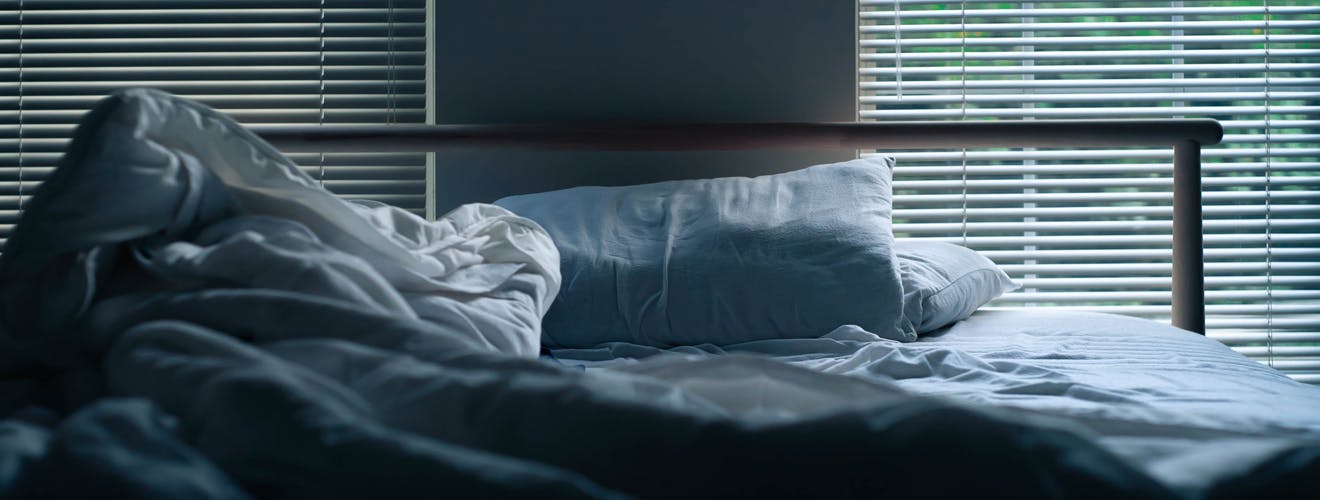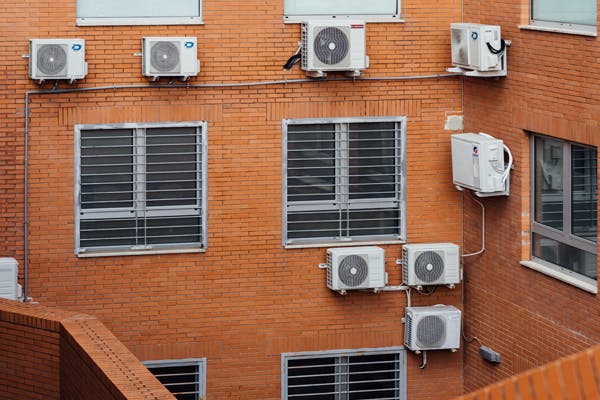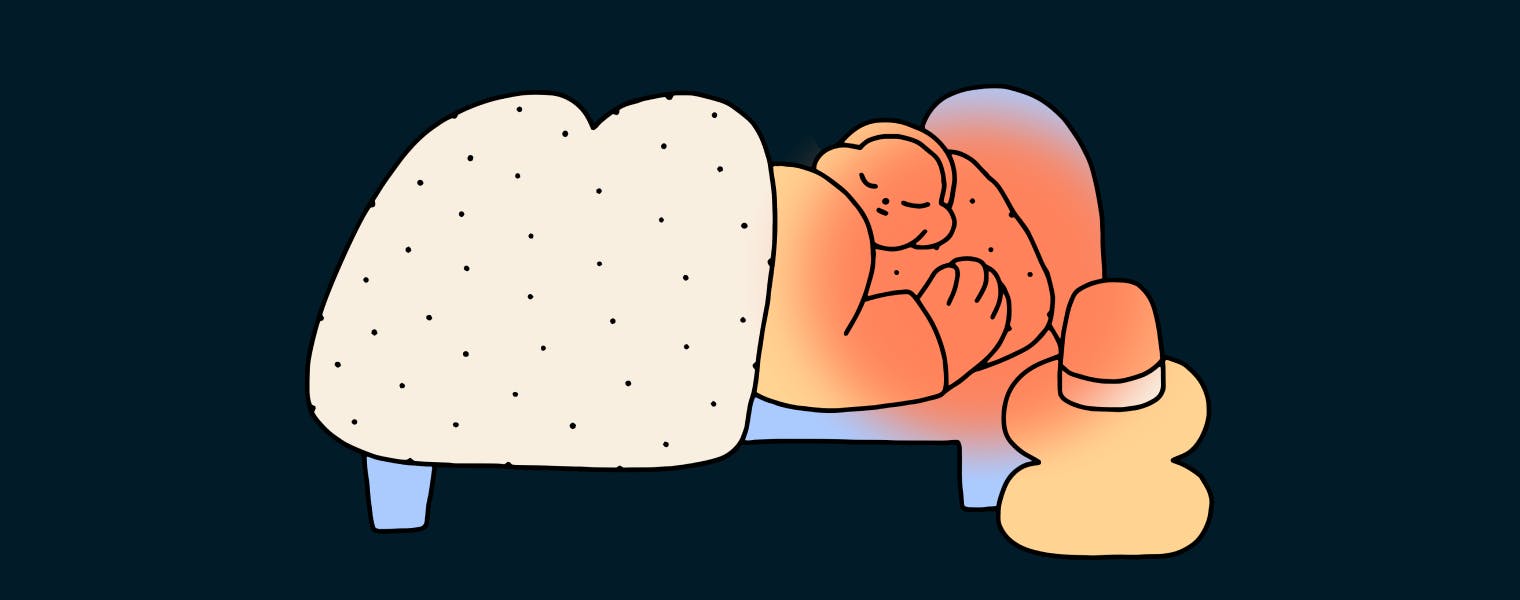The Best AC Temperature for Sleeping

A good night's sleep depends on your sleeping conditions and hygiene habits. Ideal sleeping conditions include a dark, quiet place with a slightly cooler temperature. For example, a cool room can help you get enough sleep. But what is the best temperature for sleep? Read on below to find out. In this post, we'll discuss why sleeping in cooler temperatures is ideal, the best AC temperature for sleeping, and tips for achieving a better sleep environment.
Why Does Sleeping in a Cold Room Help You Sleep?
Many researchers hint that the core body temperature drops one or two degrees while sleeping. A cooler room helps the body temperature reach these levels sooner. The quicker the body temperature drops, the sooner you will be able to fall asleep.
Remember, our sleep cycles are programmed around circadian rhythms. Also known as internal body clocks, these cycles rely heavily on light and the dark to prepare the body for changes that are influenced by the environment. A cold room signals to the body that evening has arrived, and that it will soon be time to sleep.
Warmer temperatures, on the other hand, evoke a negative effect on sleep. They induce alertness, reduce slow wave sleep, and decrease rapid eye movement (REM) sleep. Similarly, high ambient temperatures can cause insomnia in healthy people.
REM sleep and slow-wave sleep control mood and the immune system. A decrease in the duration of both types of sleep leads to grogginess and a weaker immune system. It also hinders the mind's cognitive abilities, such as learning, thinking, and reasoning.
The Best Air Conditioner Temperature for Quality Sleep

According to research, the best temperature to fall asleep is around 65˚F. However, other studies note that the most comfortable temperatures for falling asleep range from 60˚F to 67˚F. The ideal room temperature falls in this range. That way, you will experience better odds of reaching REM sleep and prolonging its duration.
Does the Recommended AC Temperature Change by Location?
The ideal AC temperature can vary from location to location, depending on the climate. That doesn't just account for the external temperature; climate also indicates rain, wind, and humidity.
The best AC temperature for sleeping in a humid climate, or with humidity levels below 50%, is around 75 degrees Fahrenheit. Your unit should also be left on dry mode so as to not drain all the moisture from the air. Instead, this will cool down the room temperature and maintain healthy humidity levels.
How Can I Make Sure My Room Is Cold Enough by Bedtime?
One of the most common mistakes we make is turning on our ACs when it is time to sleep. Here are some tips to make sure your room is cold enough by bedtime:
Set Your AC Early
Melatonin, otherwise known as the "sleep hormone," is released two hours before bedtime. The chemical is responsible for regulating the circadian cycles of the body and sleep. It works by increasing wakefulness which in turn promotes sleep.
It is advised to turn on the air conditioner at least half an hour before you head to bed. Within that window, the room will become well ventilated and cooler, making it easier for sleep to come.
Buy a Fan to Help Circulate the Cool Air
Although an air conditioner will keep your room cold for most of the night, purchasing a bedside fan for increased ventilation will be a good investment. The air will be equally distributed in the room with the help of the fan. The added airflow will keep your body and home cool when you're sleeping.
Invest in Cooling Bedding
Cooling sheets absorb moisture and help the body remain cool. They can help dissipate the heat generated from sleeping on memory foam. In hotter areas, it is advised to use cooling sheets and blankets to prevent night sweats and restlessness.
Risks of Sleeping With the AC On
In addition to a spike in expenses, running the air conditioner can introduce a few downsides. . Here are some of the risks of using an air conditioner overnight:
Dryness
Air conditioning is known to drain moisture from the environment, which can be damaging to the skin. Remember, moisture on the skin surface helps keep the skin soft and hydrated.
When the skin is dehydrated, it becomes irritated and dry. Prolonged usage of AC units and lack of hydration turns the skin flaky and itchy.Skin mists and moisturizers prove to be very beneficial to the skin when staying in AC for longer periods.
Dehydration
Dehydration is a common problem experienced by people who regularly run their air conditioners at night. This is because an AC removes water vapor from the environment and dries out the air, leading to dehydration.
So, staying hydrated throughout the day and using a humidifier near the AC unit is recommended. The humidifier will provide the missing moisture from the air without turning the room stuffy.
Allergies
AC units can circulate contaminants in the air around you. They can also spread many bacteria and viruses in the air. A contaminated unit can cause allergic reactions such as hypersensitivity, asthma, and rhinitis, which make you feel sick.
You may be experiencing AC unit contamination if you show the following symptoms:
- Coughing
- Watery eyes
- Shortness of breath
- Dizziness
- Stomach issues
- Tiredness or fever.
Regular maintenance of your AC unit can help prevent the spread of diseases in your home. Changing the AC filters is a great way to get started.
Headaches
Many people find themselves waking up with headaches after sleeping with the air conditioning on. This is because they are susceptible to humidity changes in their surroundings. AC units suck up moisture and reduce humidity, causing a sudden drop in the overall moisture content of the room, which is a leading cause of headaches.
Lethargy
Sleeping or staying in air-conditioned rooms for a long time can cause fatigue and tiredness. In the cold, our body tends to create heat through shivering. Shivering causes the muscles to relax and contract in minute intervals, generating heat for the body. These mechanisms, although small, can expend a significant amount of energy. The lack of energy causes tiredness and laziness.
Another reason for feeling lethargic with an AC unit running is that our bodies are accustomed to sleeping in colder temperatures. In the evenings, when the temperature falls, our bodies recognize that as the time to fall asleep. An AC unit stimulates the same effects because of which we tend to feel sleepy and lazy.
Wrapping Up

Tuning your AC unit at the ideal temperature can ensure maximal rest and sleep, especially if you're in an area experiencing hot heat. Other factors such as proper bedding and sleep hygiene habits also greatly impact our sleep patterns. Taking warm showers before bed can also help you fall into a deep sleep. By the time your body cools, you will already be dozing off, especially if your AC is set to the right temperature
About Sandland Sleep
Sandland Sleep provides a holistic approach to your sleep problems through the right herbal supplements. Our sleep medicine works best with your natural circadian rhythms to promote sleep quality and restore healthy sleeping patterns. With a guaranteed 30-day recovery from insomnia and other sleeping problems, you can be sure to put your faith in our remedies.
The ideal sleeping temperature is said to be 65˚Fahrenheit, but people may bump things to 72˚Fahrenheit if they get too cold. At the end of the day, the temperature you decide to run your AC unit depends on your personal preferences. There is no restriction on what temperature you should run your AC on.
Leaving your AC running through the night can introduce a few downsides, including dry skin, allergies, headaches, and lethargy. Leaving the AC on for long stretches of time is usually only recommended when experiencing extremely warm temperatures.
Internal thermostats are useful in many ways. To save on energy costs, switching to programmable or smart thermostats will allow the bedroom temperature to be controlled automatically throughout the night. A good programmable thermostat will help save a lot on energy bills and also improve sleep duration. Some smart thermostats also work with Wi-Fi for daily schedules, weather conditions, and heating and cooling needs.







